Search titles
Displaying results 11 to 20 of 223.

Visions and Revisions in Sanskrit Narrative »
Studies in the Sanskrit Epics and Purāṇas
Edited by: Raj Balkaran, McComas Taylor
Publication date: November 2023
Sanskrit narrative is the lifeblood of Indian culture, encapsulating and perpetuating insights and values central to Indian thought and practice. This volume brings together eighteen of the foremost scholars across the globe, who, in an unprecedented collaboration, accord these texts the integrity and dignity they deserve. The last time this was attempted, on a much smaller scale, was a generation ago, with Purāṇa Perennis (1993). The pre-eminent contributors to this landmark collection use novel methods and theory to meaningfully engage Sanskrit narrative texts, showcasing the state of contemporary scholarship on the Sanskrit epics and purāṇas.
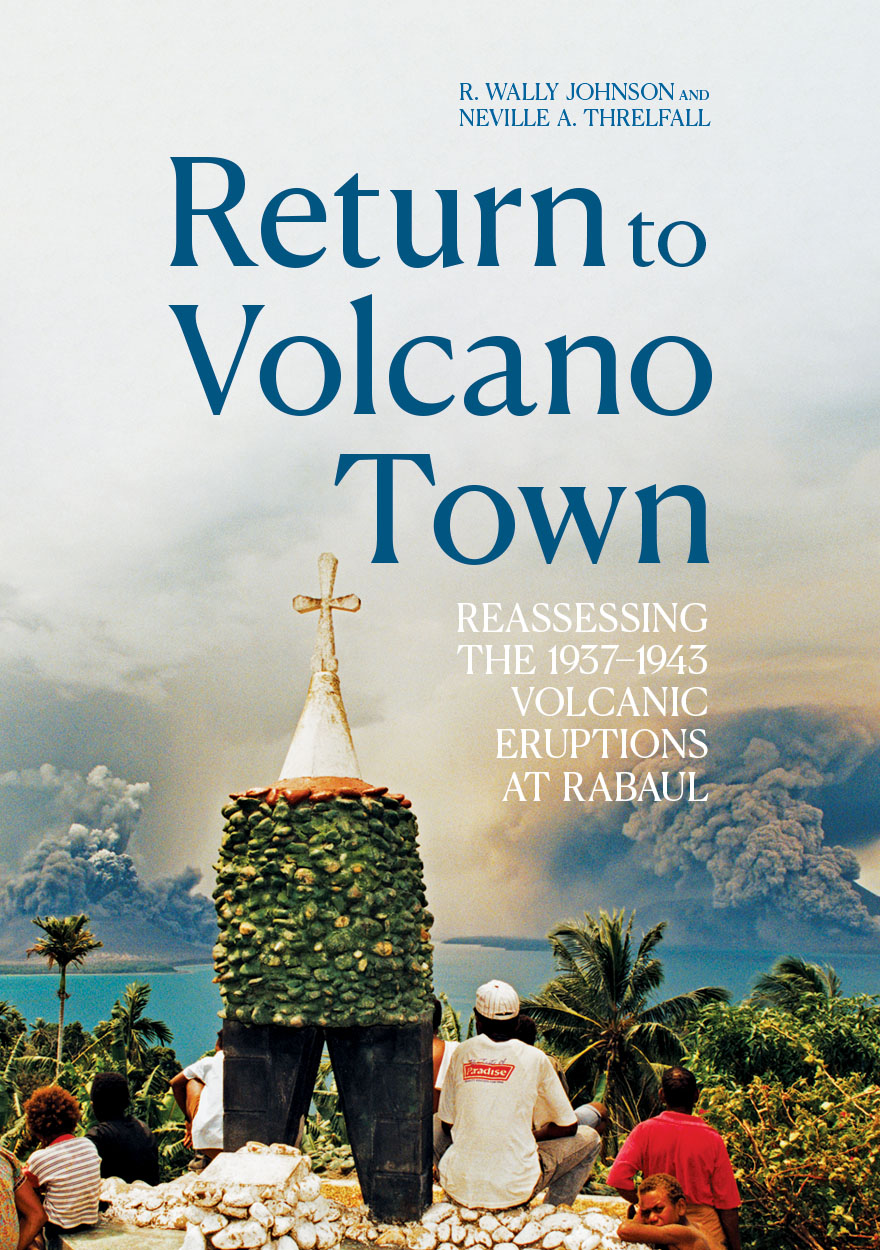
Return to Volcano Town »
Reassessing the 1937–1943 Volcanic Eruptions at Rabaul
Authored by: R. Wally Johnson, Neville A. Threlfall
Publication date: October 2023
Wally Johnson and Neville Threlfall re-examine the explosive volcanic eruptions that in 1937–43 killed more than 500 people in the Rabaul area of East New Britain, Papua New Guinea. They reassess this disaster in light of the prodigious amount of new scientific and disaster-management work that has been undertaken there since about 1971, when strong tectonic earthquakes shook the area. Comparisons are made in particular with volcanic eruptions in 1994–2014, when half of Rabaul town was destroyed and then abandoned.
A striking feature of historical eruptive periods at Rabaul is the near‑simultaneous activity at Vulcan and Tavurvur volcanoes, on either side of Rabaul Harbour. Such rare ‘twin’ eruptions are interpreted to be the result of a common magma reservoir beneath the harbour. This interpretation has implications for ongoing hazard and risk assessments and for volcano monitoring in the area.
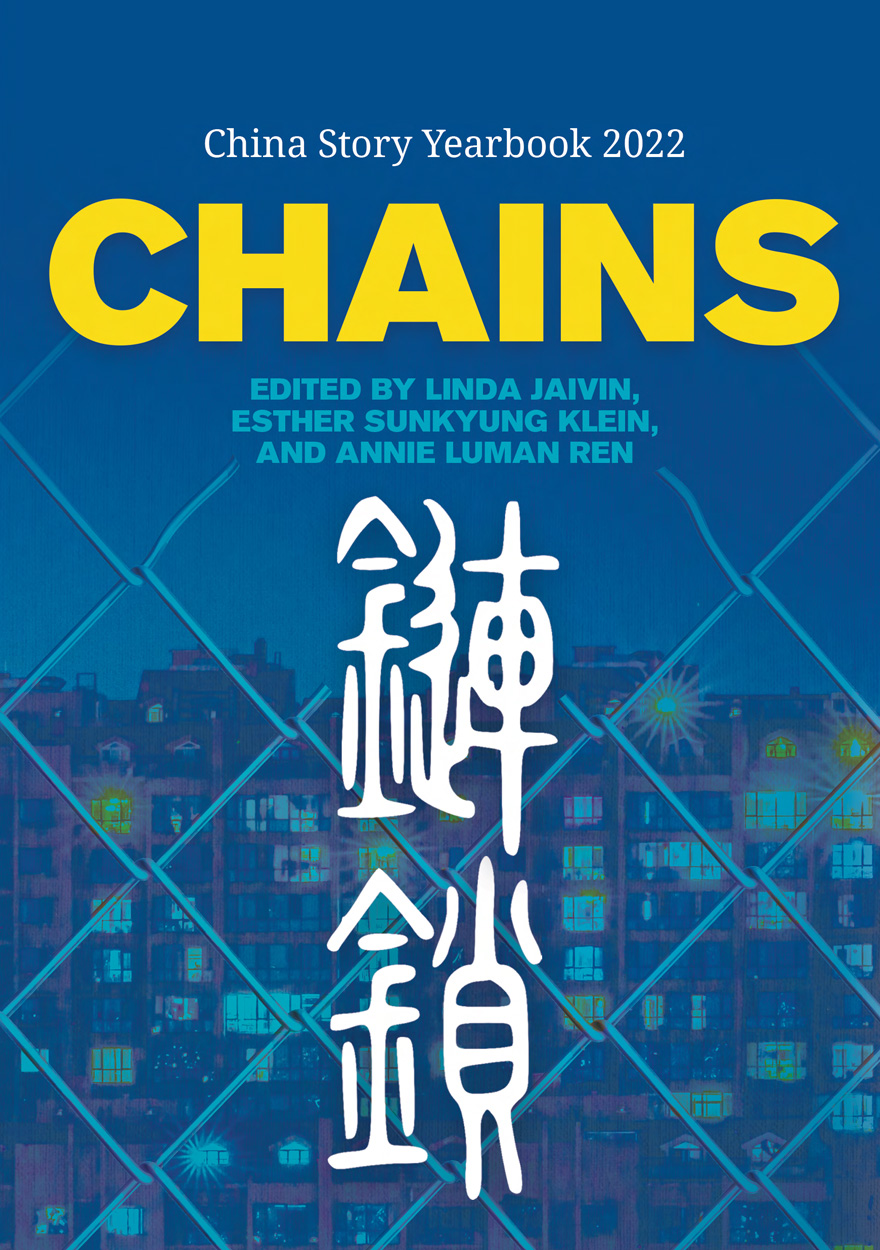
Chains »
Edited by: Linda Jaivin, Esther Sunkyung Klein, Annie Luman Ren
Publication date: July 2023
Speaking to the Twentieth National Congress of the Communist Party of China, in October 2022, President Xi Jinping reiterated his commitment to the ‘opening up’ policy of his predecessors — a policy that has burnished the party’s political legitimacy among its citizens by enabling four decades of economic development. Yet, for all the talk of openness, 2022 was a year of both literal and symbolic locks and chains — including, of course, the long, coercive, and often brutally enforced lockdowns of neighbourhoods and cities across China, most prominently Shanghai. Then there was a vlogger’s accidental discovery of the ‘woman in chains’, sparking an anguished, nationwide conversation about human trafficking. That was part of a broader (if frequently censored) conversation about gendered violence and women’s rights, in a year when women’s representation at the highest levels of power, which was already minimal, decreased even further. There was trouble with supply chains and, with the Fourth Taiwan Strait Crisis, in August, island chains as well. Despite the tensions in the Asia-Pacific, the People’s Republic of China expanded its diplomatic initiatives among Pacific island nations and celebrated fifty years of diplomatic links with both Japan and Australia. As the year drew to a close, a tragic fire in a locked-down apartment building in Ürümqi triggered a series of popular protests that brought an end to three years of ‘zero COVID’. The China Story Yearbook: Chains provides informed perspectives on these and other important stories from 2022.
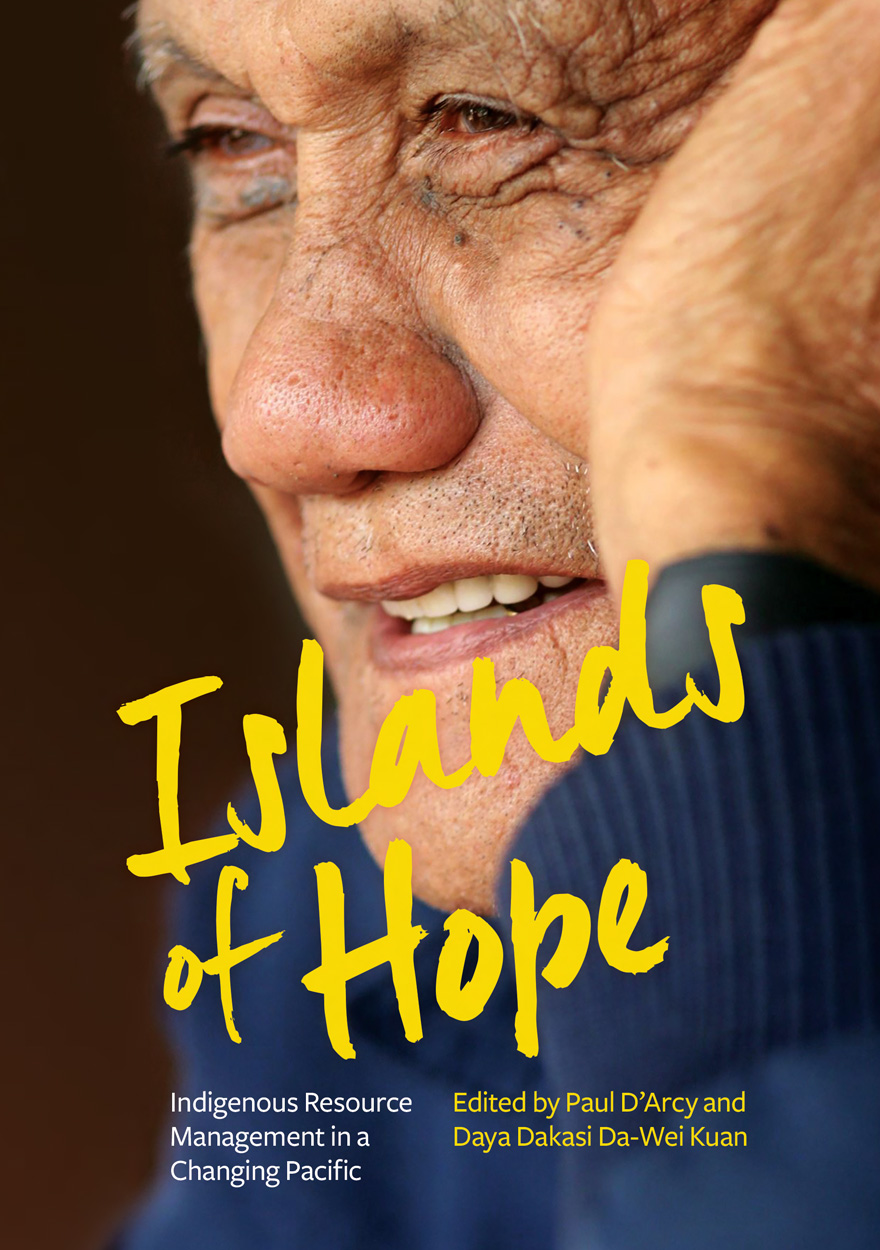
Islands of Hope »
Indigenous Resource Management in a Changing Pacific
Edited by: Paul D’Arcy, Daya Dakasi Da-Wei Kuan
Publication date: May 2023
In the Pacific, as elsewhere, indigenous communities live with the consequences of environmental mismanagement and over-exploitation but rarely benefit from the short-term economic profits such actions may generate within the global system.
National and international policy frameworks ultimately rely on local community assent. Without effective local participation and partnership, these extremely imposed frameworks miss out on millennia of local observation and understanding and seldom deliver viable and sustained environmental, cultural and economic benefits at the local level.
This collection argues that environmental sustainability, indigenous political empowerment and economic viability will succeed only by taking account of distinct local contexts and cultures. In this regard, these Pacific indigenous case studies offer ‘islands of hope’ for all communities marginalised by increasingly intrusive—and increasingly rapid—technological changes and by global dietary, economic, political and military forces with whom they have no direct contact or influence.

Wehali: The Female Land »
Traditions of a Timorese Ritual Centre
Authored by: Tom Therik
Publication date: March 2023
Wehali defines itself as the ritual centre of the island of Timor. As a ritual centre, Wehali continues to be the residence of a figure of traditional authority on whom, in the 18th century, the Dutch conferred the title of Kaiser (Keizer) and to whom the Portuguese gave the title of Emperor (Imperador). At one time, Wehali was the centre of a network of tributary states, which both the Dutch and Portuguese regarded as paramount to the political organisation of the island. This book is a study of Wehali in its contemporary setting as it continues to maintain its rituals and traditions.
Significantly, Wehali is a ‘Female’ centre and its ‘Great Lord’ is considered to be a ‘Female’ lord. Whereas other Timorese societies are organised along male lines, in Wehali, all land, all property, all houses belong to women. Men are exchanged as husbands in marriage. Wehali is thus considered to be the ‘husband-giver’ to the surrounding realms on the island that look to its inner power as their source of life.
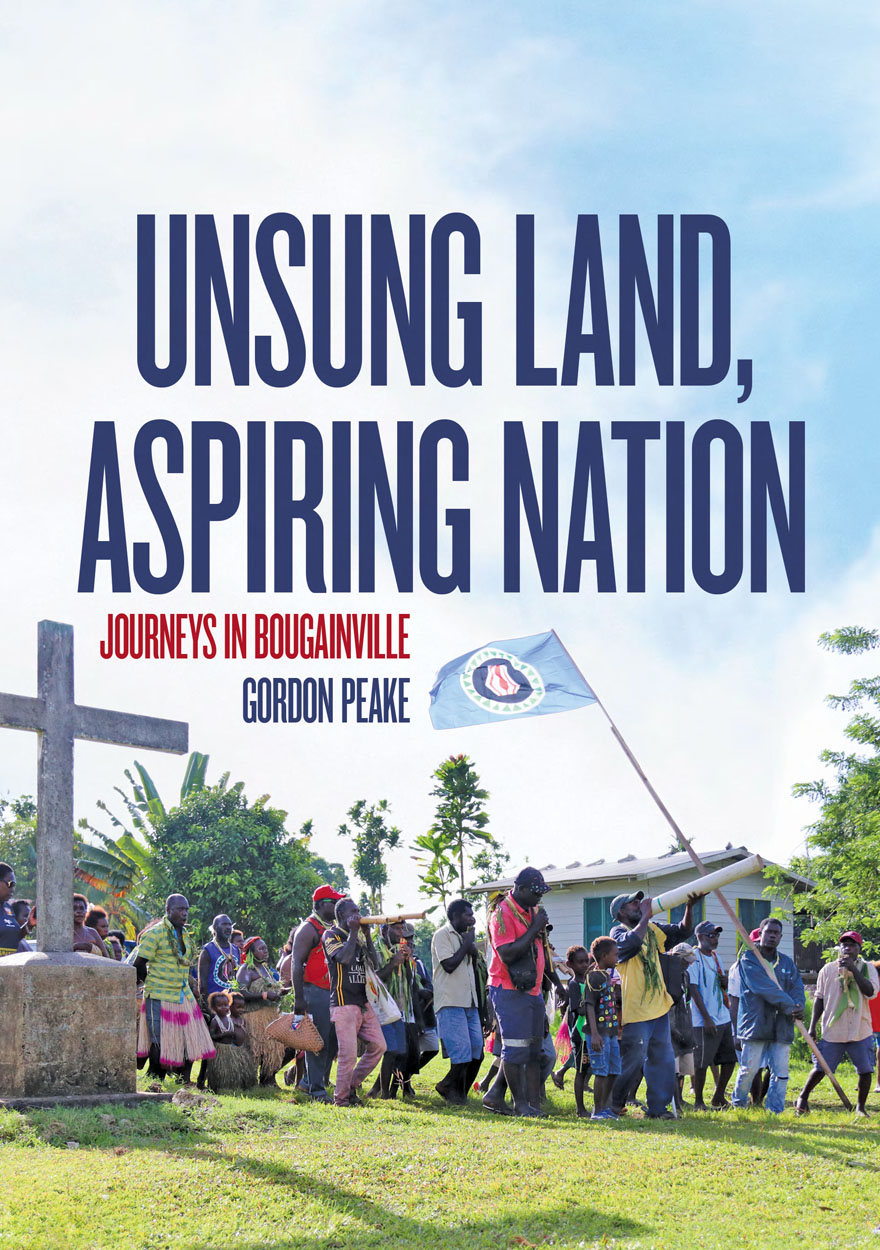
Unsung Land, Aspiring Nation »
Journeys in Bougainville
Authored by: Gordon Peake
Publication date: December 2022
In 2016, Gordon Peake answers a job advertisement for a role with the government of the Autonomous Region of Bougainville, a collection of islands on the eastern fringe of Papua New Guinea looking to strike out as a country of its own.
In his day job he sees at first hand the challenges of trying to stand up new government systems. Away from the office he travels with former rebels, follows an anthropologist’s ghost and visits landmarks from the region’s conflict. In 2019, he witnesses joy and euphoria as the people of Bougainville vote in a referendum on their future.
Out of these encounters emerges an unforgettable portrait of this potential nation-in-waiting.
Blending narrative history, travelogue and personal reminiscences, Unsung Land, Aspiring Nation is an engaging memoir as well as an insightful meditation on the realities of nation-making and international development.
‘Heartfelt and honest. This book is an insightful read and a valuable addition to scholarship on Bougainville’s journey to peace.’
— Joseph Nobetau, former Chief Secretary to the Autonomous Bougainville Government
‘An excellent piece of engaged travel writing. With first-hand observation and curiosity, Gordon has produced a deeply informed, compelling and evocative account of war, survival and nation-building in what may become the world’s newest country.’
— Tom Bamforth, author of The Rising Tide: Among the Islands and Atolls of the Pacific Ocean
Unsung Land, Aspiring Nation is also available as an audiobook.
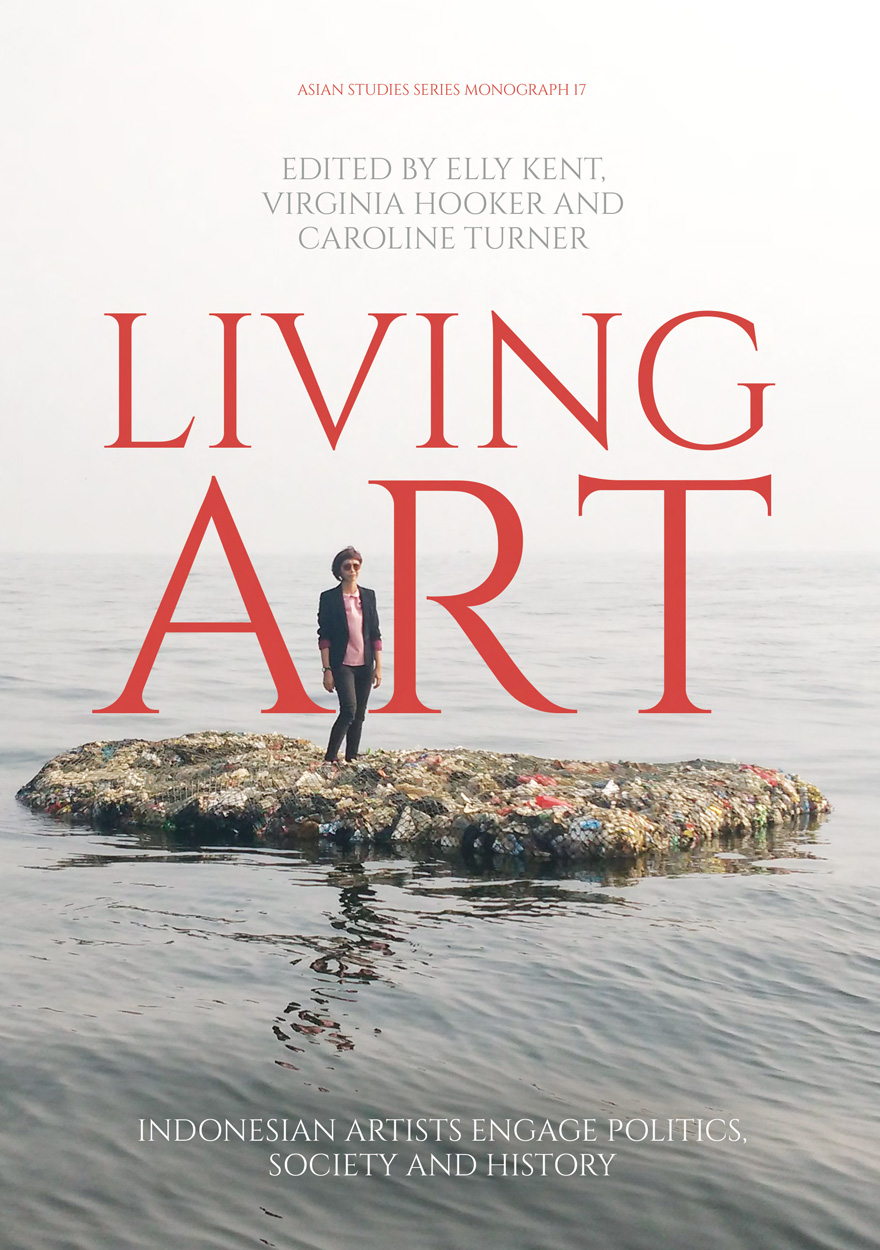
Living Art »
Indonesian Artists Engage Politics, Society and History
Publication date: November 2022
Living Art: Indonesian Artists Engage Politics, Society and History is inspired by the conviction of so many of Indonesia’s Independence-era artists that there is continuing interaction between art and everyday life. In the 1970s, Sanento Yuliman, Indonesia’s foremost art historian of the late twentieth century, further developed that concept, stating: ‘New Indonesian Art cannot wholly be understood without locating it in the context of the larger framework of Indonesian society and culture’ and the ‘whole force of history’. The essays in this book accept Yuliman’s challenge to analyse the intellectual, sociopolitical and historical landscape that Indonesia’s artists inhabited from the 1930s into the first decades of the new millennium, including their responses to the COVID-19 pandemic.
The inclusion of one of Yuliman’s most influential essays, translated into English for the first time, offers those outside Indonesia an insight into a formative period in the generation of new art knowledge in Indonesia. The volume also features essays by T. K. Sabapathy, Jim Supangkat, Alia Swastika, Wulan Dirgantoro and FX Harsono, as well as the three editors (Elly Kent, Virginia Hooker and Caroline Turner). The book’s contributors present recent research on issues rarely addressed in English-language texts on Indonesian art, including the inspirations and achievements of women artists despite social and political barriers; Islam- inspired art; artistic ideologies; the intergenerational effects of trauma; and the impacts of geopolitical change and global art worlds that emerged in the 1990s. The Epilogue introduces speculations from contemporary practitioners on what the future might hold for artists in Indonesia.
Extensively illustrated, Living Art contributes to the acknowledgement and analysis of the diversity of Indonesia’s contemporary art and offers new insights into Indonesian art history, as well as the contemporary art histories of Southeast Asia and Asia more generally.
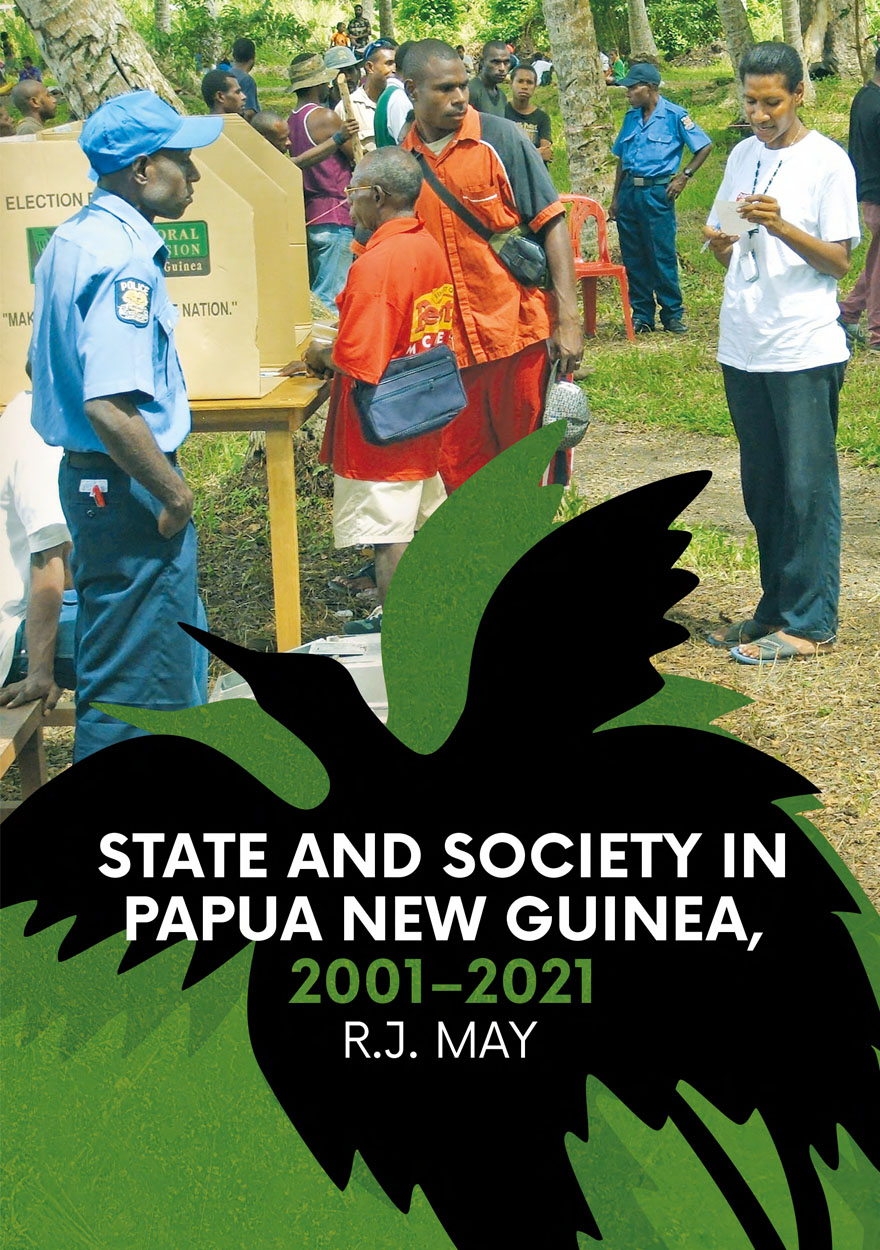
State and Society in Papua New Guinea, 2001–2021 »
Authored by: R.J. May
Publication date: August 2022
In a previous volume, State and Society in Papua New Guinea: The First Twenty-Five Years (2001, reprinted by ANU E Press in 2004), a collection of papers by the author published between 1971 and 2001 was put together to mark Papua New Guinea’s first 25 years as an independent state. This volume presents a collection of papers written between 2001 and 2021, which update the story of political and social development in Papua New Guinea in the first two decades of the twenty-first century.
The chapters cover a range of topics, from an evaluation of proposals for political reform in the early 2000s, a review of the discussion of ‘failing states’ in the island Pacific and the shift to limited preferential voting in 2007, to a detailed account of political developments from the move against Sir Michael Somare in 2011 to the election of Prime Minister Marape and his performance to 2022. There are also chapters on language policy, external and internal security, religious fundamentalism and national identity, and the sustainability of economic growth.
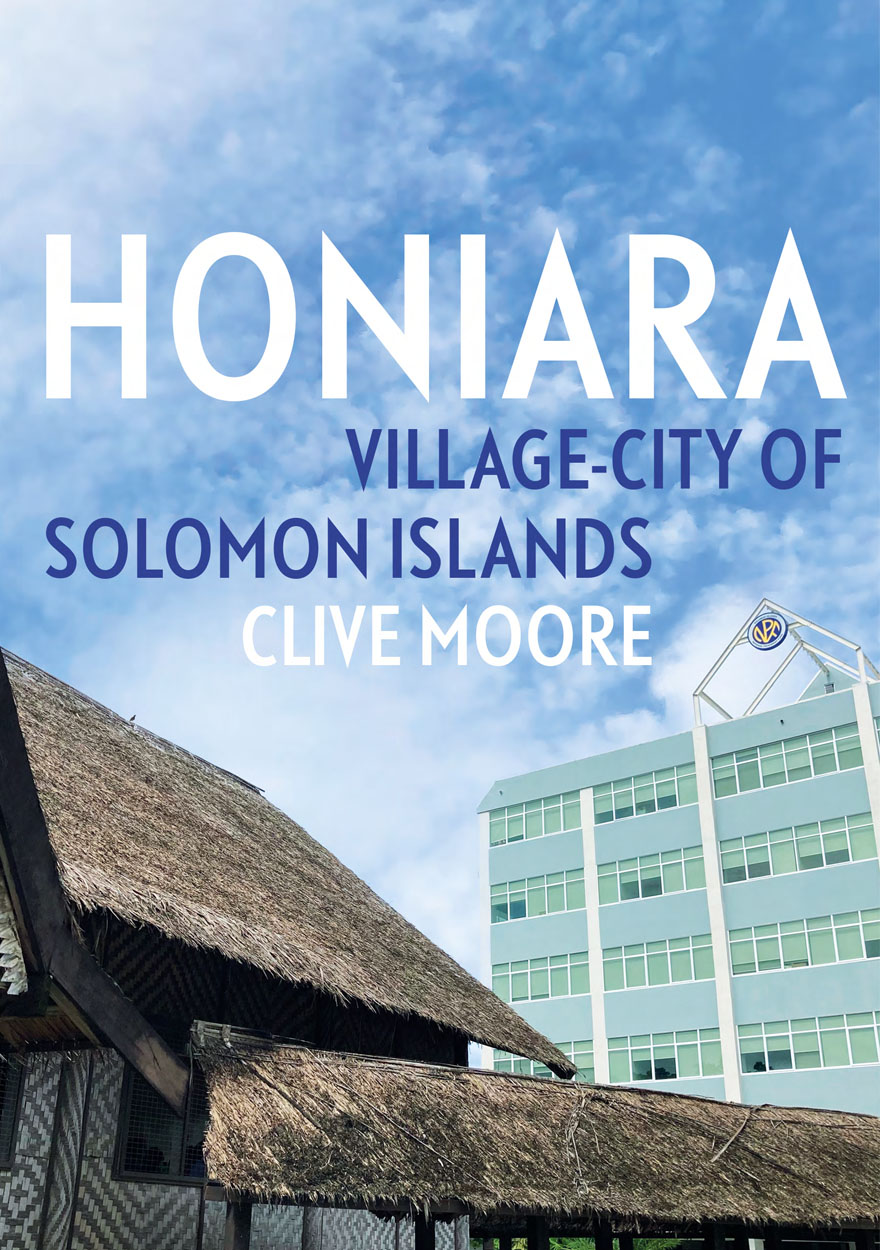
Honiara »
Village-City of Solomon Islands
Authored by: Clive Moore
Publication date: May 2022
Nahona`ara—means ‘facing the `ara’, the place where the southeast winds meet the land just west of Point Cruz. Nahona`ara became Honiara, the capital city of Solomon Islands with a population of 160,000, the only significant urban centre in a nation of 721,000 people.
Honiara: Village-City of Solomon Islands views Honiara in several ways: first as Tandai traditional land; then as coconut plantations between the 1880s and 1930s; within the British protectorate (1893–1978) and its Guadalcanal District; in the 1942–45 war years, which created the first urban settlement; in the directly post-war period until 1952 as the new capital of the protectorate, replacing Tulagi; and then as the headquarters of the Western Pacific High Commission (WPHC) between 1953 and 1974. Finally, in 1978, Honiara became the capital of the independent nation of Solomon Islands and the headquarters of Guadalcanal Province.
The book argues that over decades there have been four and sometimes five changing and intersecting Honiara ‘worlds’ operating at one time, each of different social, economic and political significance. The importance of each group—British, Solomon Islanders, other Pacific Islanders, Asians, and more recently the 2003–17 presence of the Regional Assistance Mission to Solomon Islands (RAMSI)—has changed over time.
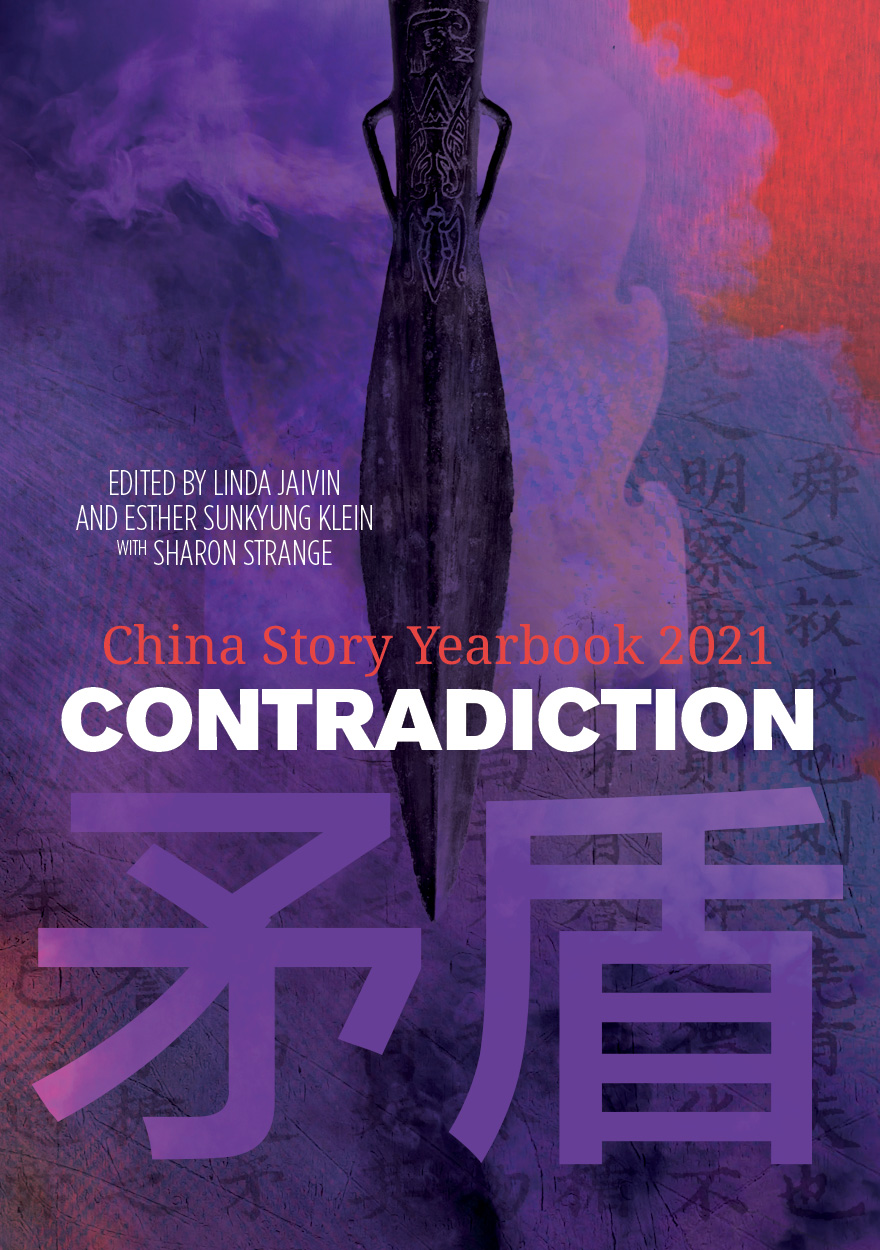
Contradiction »
Edited by: Linda Jaivin, Esther Sunkyung Klein, Sharon Strange
Publication date: May 2022
In the second year of the COVID-19 pandemic, the many facets of crisis—the theme of last year’s China Story Yearbook—fractured into pictures of contradiction throughout Chinese society and the Chinese sphere of influence.
Contradiction: the ancient Chinese word for the concept holds within it the image of an unstoppable spear meeting an impenetrable shield. It describes a wide range of phenomena that English might express with words like conflict, clash, paradox, incongruity, disagreement, rebuttal, opposition, and negation. This year’s Yearbook presents stories of action and reaction, of motion and resistance.
The theme of contradiction plays out in different ways across the different realms of society, culture, environment, labour, politics, and international relations. Great powers do not necessarily succeed in dominating smaller ones. The seemingly irresistible forces of authoritarianism, patriarchy, and technological control come up against energised and surprisingly resilient means of resistance or cooptation. Efforts by various authorities to establish monolithic narrative control over the past and present meet a powerful insistence on telling the story from an opposite angle. The China Story Yearbook: Contradiction offers an accessible take on this complex and contradictory moment in the history of China and of the world.



